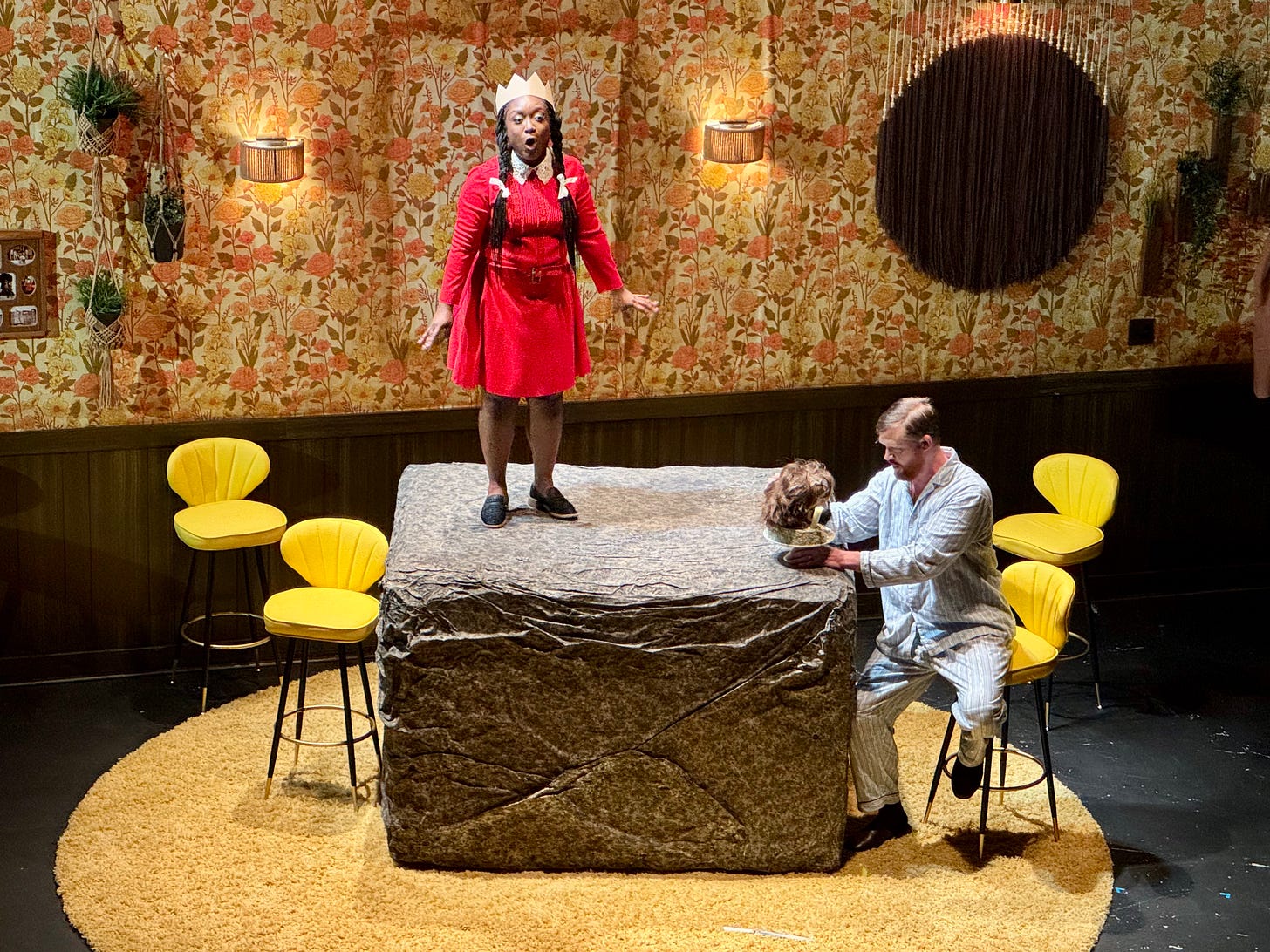My article on cello endpins for the New York Times came out online on Tuesday and will be in print on Sunday. (Here is a free link.)
The comments section is delightful, full of personal anecdotes and intelligent clarifications. There’s also this, which made me laugh bleakly:
“In other news, as the Republic circles the drain and the world descends further into the chaos of war, intellectuals debate how many angels can fit on the head of a pin.” (They missed the obvious endpin pun.)
The commenter is entirely correct that, compared to other headlines this week, the topic of endpins seems a bit frivolous. (I actually filed the story in January, before Trump took office.) But the article is also about gender and human nature. It has, perhaps, loose applications to the current moment. Though maybe that’s a stretch.
However, what makes me proudest of the article is this: That I am trans and interview another trans cellist. Even cooler: It’s not mentioned that we’re trans because it’s not immediately relevant to the story. Or is it?
Right now, both making music and being queer are politicized. The loss of NEA grants has been a blow to the community about which I write. I know of several fellow music journalists who have turned also to political reporting. While so admirable, this is something for which I just don’t have the chops.
But this Pride — the busiest month for a queer classical critic — please know that I am listening carefully to how musicians are grappling with this moment.
For example, Catapult Opera’s staging of Alessandro Stradella’s San Giovanni Battista last week didn’t have to be queer, but it certainly was.
In this reading of Stradella’s version of the Salome story, Herod (bass-baritone Joseph Beutel) and John the Baptist (countertenor Randall Scotting) have a romantic history, as suggested by the line “you recognize me perfectly.”
In Catapult’s staging, which takes place in the ‘70s, a birthday cake on a platter prefigures John the Baptist’s decapitation, whereas Salome’s licking the icing off the knife symbolizes her uncontrolled desire.
Stradella’s dramatic Baroque score is full of cliffhangers. There was lush playing throughout, especially from the continuo section (Ezra Seltzer on cello, Caitlyn Koester on harpsichord, and Adam Cockerham on theorbo). Seltzer’s attack during certain arias was dagger-sharp.
Scotting, in tight-crotched Levi’s and smeared with frosting, sometimes struggled to pierce through. But when he did, his voice bloomed like blood on silk.
Providing contrast to Beutel’s steak-and-potatoes voice was fiery soprano Raven McMillon as Salome. Throughout it all, tenor Patrick Bessenbacher managed to seem like just-a-regular-guy, at one point singing while shaking a cocktail.
My only criticism is that Herod’s wife and Salome’s mother Herodias (sung by soprano Olanna Goudeau) lacked some character development. Was she jealous of John the Baptist’s relationship with her husband? Or perhaps turned on?
In any case, my favorite detail was that Herod keeps his boyfriend in a dog-sized cage underneath the dining table. Kinky!
An altogether different vibe was curated by ChamberQUEER’s “Only This Room,” a site-specific performance at the wood-beamed Coffey Street Studio as part of “Queer Ancestry.”
In Steph Davis’s “I go to prepare a place for you,” low, thunderous marimba (Davis) was paired surprisingly with high, shimmery yangqin (Mantawoman).
In “The Trees Know” and in “Breath Deep,” the legendary Ruth Cunningham sounded like a modern-day Hildegard von Bingen.
In composer-performer Anthony R. Greene’s “TO ALL THOSE WHO WERE STRIPPED OF A CHANCE TO BE,” the ensemble cried out and moaned, as if the only response to grief were to make strange noises.
The soprano Danielle Buonaiuto was crystal-clear in an arrangement of SOPHIE’s “Is It Cold in the Water.” The performance also included one of best renditions of Caroline Shaw’s “Limestone & Felt” that I’ve heard. The cellist Jules Biber’s pizzicato was like a rubber band snapping on a wrist.
But I could especially hear the ancestors when Davis played the West African gyil in “Banyere yo,” as well as in Mantawoman’s pin-drop solo in “Joyous Xinjiang.”
Queer ancestors, including Hildegard, were also summoned at leiken’s “Dead Songs: Lust and Longing” in the Met Museum’s medieval sculpture hall.
Almost-blindingly backlit, and surrounded by Virgin and Child statues, leiken traversed a catwalk, their pure voice floating up towards the iron choir screen. They were joined by Keir GoGwilt’s ultra-bright hardanger d’amore, Doug Balliett’s gut-string grumbliness, and Ruben Dax’s looping beats.
The costumes, by Vivienne Westwood no-less, included kilts, woolen socks, and batwing-like blazers. The dancer Meg Harper, in staghorn makeup, resembled a reincarnated Claude Cahun. The director Andrew Ondrejcak made intense gestures as leiken chanted. It all, strangely, worked.
“When I die, pin me to your heart and wrap my skin around you,” recited Eve Beglarian, “so I can warm you, so I can show you my love is as strong as death.” The words brought to mind a leather-bound book or, perhaps, a musical instrument.






